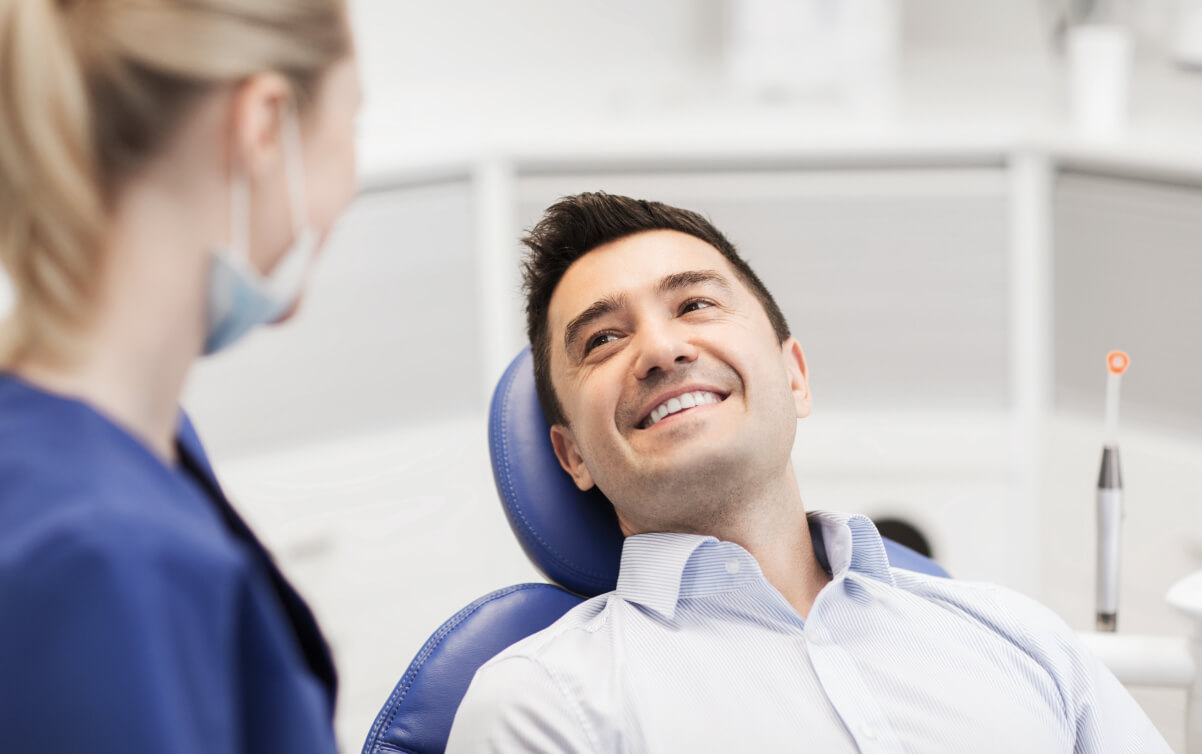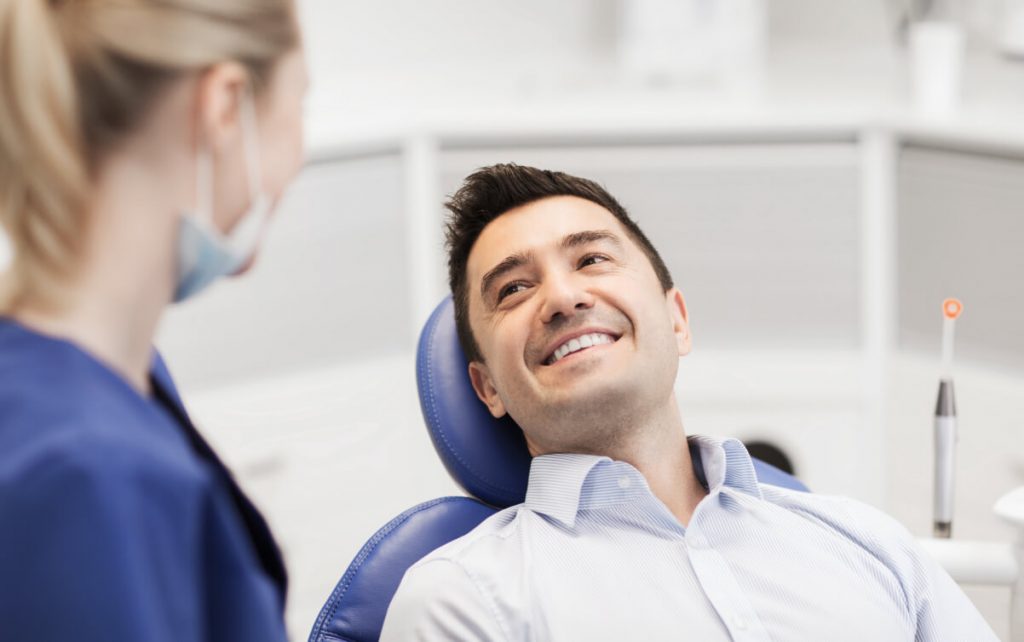Teeth Grinding: The Silent Killer of Your Dental Health
Teeth grinding, also known as bruxism, is a condition that affects millions of people across the globe. It is a silent killer of dental health that can cause significant damage to your teeth, jaws, and overall oral health. Many people are unaware that they grind their teeth during their sleep, but the consequences of this habit can be severe and long-lasting. Teeth grinding can lead to tooth sensitivity, jaw pain, headaches, and even tooth loss. Moreover, it can also disrupt your sleep and cause other health complications. If you have been experiencing any symptoms related to teeth grinding, it’s time to pay attention to your dental health and take proactive measures to prevent any further damage. In this blog, we will explore the causes, effects, and treatments of teeth grinding and offer practical tips to help you protect your dental health and maintain a healthy smile.
Definition of Teeth Grinding
Teeth grinding, known as bruxism, is an unconscious habit where a person clenches and grinds their teeth, often during sleep or even during the day. This condition can lead to various symptoms like headaches, jaw pain, and tooth sensitivity, as well as dental problems such as worn enamel, broken teeth, and tooth loss.
Bruxism affects people of all ages, but it’s more common in children and young adults. Research suggests that about 20% of children and 8% of adults experience teeth grinding. While the exact causes are yet to be determined, factors like anxiety, stress, sleep disorders, and abnormal occlusion have been associated with the condition.
For most individuals, teeth grinding is not severe and doesn’t require treatment. However, chronic bruxism may benefit from various treatment options available. Oral appliances, such as mouthguards, can protect teeth from damage, while behavior modification techniques aim to reduce stress and anxiety. In some cases, medications may also be prescribed to manage symptoms. Regular dental check-ups and maintaining good oral hygiene through brushing and flossing twice daily can also play a role in preventing or reducing teeth grinding.
By understanding the impact of bruxism and taking the necessary precautions, individuals can better protect their dental health and overall well-being. So, whether you’re a child, adult, or somewhere in between, being mindful of teeth grinding can go a long way in maintaining a healthy smile.

Teeth Grinding Treatment
Causes of Teeth Grinding
Teeth grinding, also known as bruxism, is a common condition that affects many people worldwide. While the exact cause is still unknown, various factors have been linked to this condition, such as stress, anxiety, sleep disorders, medications, abnormal bite or missing teeth, and certain lifestyle habits.
One of the primary culprits behind teeth grinding is stress and anxiety. When we are feeling stressed, our bodies tend to release tension through muscle contractions, leading to clenching and grinding of the teeth. This can have a detrimental impact on our oral health and overall well-being.
Sleep disorders, including sleep apnea and snoring, have also been associated with teeth grinding. These conditions disrupt the normal breathing pattern during sleep, causing the body to compensate by clenching and grinding the teeth unconsciously. Identifying and addressing these sleep disorders is crucial in managing teeth grinding.
In some cases, certain medications used to treat depression and anxiety may induce teeth grinding as a side effect. It’s important to be aware of the potential impacts of medications and discuss any concerns with healthcare professionals.
Additionally, individuals with an abnormal bite or missing teeth may experience teeth grinding as their jaws attempt to compensate for the misalignment. Seeking dental advice and considering corrective measures can help alleviate this issue.
Certain lifestyle habits like excessive alcohol consumption, smoking, or recreational drug use can also contribute to teeth grinding. These habits can increase muscle tension and exacerbate grinding tendencies.
It’s essential to consult with a dental professional if you experience any symptoms or suspect that you may be grinding your teeth. They can provide a thorough evaluation and suggest appropriate treatments or interventions to manage teeth grinding effectively.
Teeth grinding is a complex condition with multiple potential causes. Understanding these causes and seeking professional guidance can pave the way for effective management and improved oral health. Remember to prioritize self-care and reach out to healthcare professionals whenever necessary.
Signs and Symptoms of Teeth Grinding
Teeth grinding, also known as bruxism, can vary in its presentation from person to person. While some individuals may experience mild symptoms, others may face more severe consequences. Recognizing the signs and symptoms of teeth grinding is vital not only for seeking timely treatment but also for preventing further damage. Let’s delve into some common indicators to watch out for:
- Headaches: Grinding your teeth can lead to muscle tension and strain in the jaw, often resulting in headaches and migraines.
- Jaw pain or stiffness: The constant clenching and grinding of your teeth can exert substantial pressure on your jaw muscles, causing discomfort or even pain.
- Tooth sensitivity: The repetitive motion of grinding can wear down the enamel, exposing the sensitive layers of your teeth, making them susceptible to pain and increased sensitivity.
- Sleep disturbances: Teeth grinding is frequently associated with sleep disorders such as sleep apnea or snoring. Additionally, the noise generated by clenching and grinding can disrupt your sleep or even disturb your partner’s rest.
- Worn teeth: Over time, teeth grinding can cause significant dental damage, resulting in worn or chipped enamel, exposed dentin, and, in severe cases, tooth loss.
If you are experiencing any of these symptoms or have concerns about teeth grinding, it is crucial to seek professional assistance. Schedule a dental check-up for a comprehensive evaluation and to determine the most appropriate course of action tailored to your specific case. With proper management and care, teeth grinding can be effectively controlled, ultimately improving your oral health and overall well-being.
Taking proactive steps to address teeth grinding is vital for preserving your dental health in the long run. So, don’t hesitate to seek the help you need and ensure a healthier smile.
Diagnosis and Treatment of Teeth Grinding
Teeth grinding, or bruxism, is a common dental condition that can be diagnosed and managed through various methods. Let’s explore some of the techniques used by dental professionals to diagnose and treat this issue.
Firstly, during a routine dental check-up, your dentist will conduct a thorough examination of your teeth and jaw. They will look for signs of wear or damage that may indicate teeth grinding. This clinical examination acts as an initial step in identifying the problem.
In some cases, x-rays might be necessary to assess structural issues related to teeth grinding. These x-rays help identify any abnormalities in your bite or potential problems caused by missing teeth. By examining your dental structure, your dentist can gain further insights into the condition.
To assess the alignment of your jaw, your dentist may request a bite analysis. This analysis helps determine if any imbalances in your jaw alignment are contributing to teeth grinding. Understanding the underlying causes becomes crucial when devising an effective treatment plan.
If sleep apnea or other sleep disorders are suspected to be related to your teeth grinding, a sleep study may be recommended. This study evaluates and addresses any underlying sleep issues that might exacerbate bruxism.
One effective way to prevent teeth grinding is by using a custom-made mouthguard. This device acts as a barrier between your upper and lower teeth, preventing them from rubbing against each other. Your dentist can create a mouthguard that fits your mouth perfectly, ensuring maximum comfort and effectiveness.
In addition to physical interventions, relaxation techniques can be beneficial in reducing teeth grinding. Stress management strategies like relaxation exercises or therapy help alleviate tension and thereby decrease the likelihood of bruxism.
In cases where an abnormal bite or missing teeth contribute to teeth grinding, your dentist may suggest corrective dental procedures. These procedures aim to address the underlying dental issues and provide long-term relief from teeth grinding.
Remember, seeking professional help is essential in effectively managing teeth grinding. Be sure to communicate any concerns or symptoms you may have with your dentist. By working together, you can develop a tailored treatment plan that works best for you and leads to improved oral health.

Teeth Guards for Teeth Grinding
Teeth Grinding Treatment Options
Managing teeth grinding involves several treatment options. Let’s explore some common methods that can help alleviate the issue.
One effective option is using mouth guards. These custom-made guards protect your teeth from the damaging effects of grinding. By wearing them, you can minimize the risk of dental problems caused by bruxism.
In addition to mouth guards, relaxation techniques can also play a significant role in reducing tension and controlling bruxism. By incorporating stress management techniques into your daily routine, such as meditation or deep breathing exercises, you can relieve tension and promote overall relaxation.
Sometimes, dental procedures are necessary to address teeth grinding. If dental issues contribute to your condition, procedures like crowns, bridges, or orthodontic treatment can be implemented to correct the underlying problem.
In certain cases, medication may be prescribed by your dentist to relieve muscle tension and alleviate symptoms of teeth grinding. Muscle relaxants or other prescribed drugs can provide temporary relief from the discomfort associated with bruxism.
Therapy or counseling can also be beneficial in managing stress and reducing bruxism. Seeking professional help can provide you with effective coping mechanisms and techniques to deal with the underlying causes of teeth grinding.
Moreover, small lifestyle changes can make a significant difference in preventing teeth grinding. Avoiding caffeine, alcohol, and stimulating activities before bedtime can promote better sleep quality, indirectly reducing instances of bruxism.
Remember, it’s crucial to consult with your dentist to determine the best treatment plan for your specific case. Regular dental check-ups are essential to monitor progress or any changes in your condition. Don’t overlook or neglect teeth grinding as it can have detrimental effects on your oral health and overall well-being. Take proactive measures to protect your teeth and maintain your overall health.
Tips and Prevention for Teeth Grinding
Prevention is indeed better than cure, especially when it comes to maintaining healthy teeth and preventing teeth grinding. So, let’s dive into some helpful tips to keep your pearly whites intact and your smile bright:
- Find your zen: Incorporate relaxation techniques such as deep breathing or meditation into your daily routine. These practices can reduce tension and promote overall relaxation, which can help alleviate teeth grinding.
- Kick the caffeine and alcohol habit: Avoid consuming caffeine or alcohol before bedtime as they can negatively impact the quality of your sleep. Opt for soothing herbal teas or water instead to promote a peaceful slumber.
- Address stress and anxiety: If you’re experiencing symptoms of stress or anxiety that contribute to teeth grinding, don’t hesitate to seek professional help. A knowledgeable healthcare provider can provide valuable insights and recommend appropriate strategies to manage stress effectively.
- Get that customized mouth guard: Your dentist is your ally in protecting your teeth from bruxism-related damage. Schedule an appointment to discuss getting a custom-made mouth guard that fits your mouth perfectly. This guard acts as a barrier, preventing grinding while you sleep peacefully.
- Keep those dental check-ups in check: Regular dental check-ups are crucial for monitoring any changes in your condition. They also allow your dentist to address any underlying dental issues that may be contributing to teeth grinding. Remember, preventive dental care is key!
By incorporating these tips into your daily routine, you can significantly reduce the risk of experiencing teeth grinding while maintaining optimal oral health in the long run. Don’t forget to communicate openly with your dentist and seek their professional guidance whenever you have concerns. Through this collaborative approach, you can effectively manage teeth grinding and enjoy a healthy, dazzling smile for years to come.
In summary, teeth grinding is a common condition that affects many individuals and can have detrimental effects on oral health if left untreated. However, with the right treatment plan for teeth grinding, you can manage this issue effectively and maintain optimal oral health. Whether it’s using mouth guards, incorporating relaxation techniques into your daily routine, or seeking professional help, there are various ways to address teeth grinding and promote better overall well-being. Remember, prevention is key, so don’t neglect regular dental check-ups and prioritize your oral health to keep your smile bright and healthy. So, make sure to follow these tips and work closely with your dentist to find the best treatment plan for you.
Teeth grinding, also known as bruxism, is a common condition that affects many individuals. If left unaddressed, it can have severe consequences on your oral health and overall well-being. Fortunately, with proper management and treatment, you can alleviate symptoms and protect your teeth from damage caused by grinding. Remember to seek professional help if you experience any signs of teeth grinding and follow the tips provided to prevent future occurrences. Take care of your teeth, and they will take care of your smile! So, stay proactive, maintain optimal oral hygiene, and keep smiling confidently. Your teeth will thank you for it!
https://www.google.com/maps?cid=16874987499964767764
